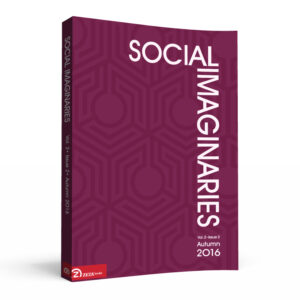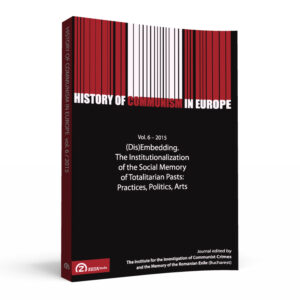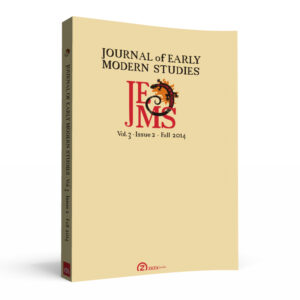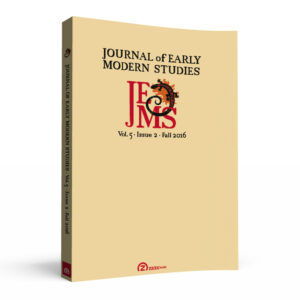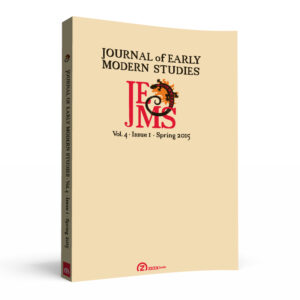Table of Contents
Jacob Dlamini, Aurea Mota and Peter Wagner: Trajectories Of Modernity—Towards A Renewal Of Historical-Comparative Sociology: An Introduction
Gerard Delanty: A Transnational World? The Implications Of Transnationalism For Comparative Historical Sociology
Abstract: The essay seeks to explore the implications of transnational and global history for comparative historical sociology, especially in light of notions of entangled history, postcolonial critiques, theories of the ‘Global South,’ and new interpretations of empire. It offers an assessment of the implications of the transnational turn for comparative history, arguing that, despite some of the claims made, this should largely be seen as a shift rather than a turn and as a corrective rather than a fundamentally new paradigm. Following from a discussion of some of the issues that have arisen from the transnational turn, in particular with respect to the work of a new generation of global historians, such as Bayly, Osterhammel and Pomeranz, the essay then considers the different contribution of comparative historical sociology, including civilizational analysis, as in the work of Eisenstadt and Arnason. The argument is advanced that while comparative historical sociology is today in crisis as a result of being overtaken by developments within transnational and global history, it offers much promise. The two fields cannot be entirely separated, but comparative historical sociology has a strong tradition of comparative analysis that is different from historiographical analysis and which remains undeveloped. The specificity of the sociological dimension is urgently in need of renewal. It is argued that this largely resides in an interpretative approach to social inquiry. However, this has not yet been fully exploited in relation to transnationalism.
Said Amir Arjomand: State Formation In Early Modern Muslim Empires: Common Origin And Divergent Paths
Abstract: Chinggis Khan’s empire of conquest unified much of the Eurasian ecumene in the thirteenth century. A constitutional reading by sedentary Persian bureaucrats of the Mongol empire is used as the background for contrasting the divergent developmental paths of imperial autocracy in the three early modern Muslim successor empires. This developmental path was historically contingent upon the transformation of ascetic Sufism into a millenarian mass movement against Turko-Mongolian domination among the subject population of its compound societies. The paradoxical impact of popular Sufism on the legitimacy of kingship was also contingent upon either the success of the aspiring millenarian challengers, as was the case with the Safavid case, or the pre-emptive appropriation of the claim to the union between apparent and real monarchy by Turko-Mongolian rulers, as with the Timurids who ruled Mughal India, or, pre-emptive construction of a counter-model, as with the Ottomans.
Ingerid S. Straume: Challenges of the Anthropocene: Between Critique and Creation
Abstract: The Anthropocene refers to the geological epoch where human activities have turned into a geological factor. The paper discusses some of the questions that emerge with this concept, related, especially, to antireductionism, transdisciplinarity and the modern notion of freedom. An important factor is the eco-philosophical critique of modern knowledge systems and what is seen as exploitative and dominating forms of knowledge. In this literature, capitalist expansion, colonization and fossil fuel consumption are seen as historically connected and supported by scientific forms of rationality that have proven to be harmful. While sharing many eco-philosophical concerns, I argue that the sciences may still harbour the resources necessary to recreate themselves in response to contemporary challenges. One example is Terrence Deacon’s autogenic theory of life, where the relationship between life and non-life is seen as continuous and historical, not abstract and metaphysical. This theory, which transgresses the problematic nature/human divide, illustrates how the sciences are capable of questioning and renewing themselves from within. Moreover, artists, sometimes working together with scientists, have been strongly inspired by the Anthropocene. Taking this as an opening for greater social transformations, the paper discusses how the Anthropocene can become part of a social movement while maintaining creativity, complexity and commitment to reason.
Aurea Mota: Uncivilised Civilisations: Reflections On Brazil And Comparative History
Abstract: Drawing on archaeological findings about individuals of the archaic Brazilian ‘hunter-gatherer’ societies and on the life and work of a contemporary Brazilian artist, Paulo Nazareth, this paper argues for the use of a timeless history in which chronological historical time will be less important in sociological comparative analyses. There are processes that belong to a significant past which still inform how societies imagine themselves and which cannot be understood from the established perspective of a divided human and natural history. These processes can only be interpreted by overcoming disciplinary constraints and by assuming that history goes beyond the systematic organisation of the facts and historical evidence. There are aspects of American archaic history that are not only completely unknown to us but also inform societal practices and imaginary significations of the past, present and future in many New World societies. The paper critically discusses historical-sociological literature on Brazil. Based on a number of perspectives developed in the fields of philosophy, sociology, anthropology, and archaeology, it will be argued that the division of the world into ‘civilisation’ and ‘other simplistic social-historical-economical-cultural groups’ is incompatible with a comparative historical sociology that does not aim to hierarchise different societal forms.
Peter Wagner: World-Sociology: An Outline
Abstract: The objective of a world-sociology is to elaborate an understanding of the present socio-political constellation that is global in its outlook but sensitive to differences in specific spatio-temporal circumstances and that is based on insights into how this present constellation has been brought about through transformations of preceding socio-political constellations. This is a time-honoured task addressed in ‘classical’ historical sociology, but largely abandoned today because of theoretical and methodological criticism of earlier attempts. This article tries to show how a new approach to this task can be developed: by identifying the elements for such work in recent debates; by outlining the conceptual steps necessary for reconstruction; and finally by sketching the contours of such a new world-sociology in some substance.
Jakub Homolka: Elaborating The Philosophical Dimensions: The Development Of Historical-Comparative Sociology In Johann Pall Arnason’s Civilizational Analysis
Abstract: This article deals with the work of the Icelandic sociologist and philosopher Johann Pall Arnason (1940–) and with his concept of ‘civilizational analysis’. More precisely, I want to show that Arnason’s original interpretation of civilizational analysis goes beyond the mainstream understanding of historical sociology as a dialogue between history and sociology in favour of philosophical approaches. By outlining the three levels of Arnason’s civilizational analysis—(I.) the reconstruction of the concept of ‘civilization’, including its history, (II.) the link to philosophical sources and (III.) the theoretical development of Eisenstadt’s heritage—the article shows that, according to Arnason, the concept of ‘civilization’ is understood as amenable to the historical-sociological concepts of ‘culture’ (Max Weber, Shmuel N. Eisenstadt) on the one hand, and the philosophical concepts of the ‘world’ (Maurice Merleau-Ponty, Jan Patočka, Cornelius Castoriadis) on the other. Arnason thus, defining ‘culture’ as the so-called ‘interpretive articulation of the world’, emphasizes the motif of ‘cultural creativity’, which is present, yet theoretically underdeveloped, both in Weber’s and Eisenstadt’s work. In this light, the article finally focuses on Arnason’s most recent attempts to discuss Eisenstadt’s concept of the ‘civilizational dimension’ of modernity. It deals primarily with the terms ‘cultural ontology’ and ‘civilizational paradox’, in which the need to link historical sociology to philosophical perspectives is most evident. The civilizational approach is thus introduced as the crucial framework of Arnason’s elaboration of the philosophical dimensions in sociological analysis.
Suzi Adams: On Johann Arnason And The Religio-Political Nexus: Some Preliminary Reflections
Abstract: This essay focuses on Arnason’s most recent work, and reconstructs his developing account of the religio-political nexus. Arnason’s elaboration of the religio-political nexus aims to extend ‘the civilizational dimension’ beyond the Axial Age to archaic civilizations. He situates the religio-political nexus within the Durkheimian-Maussian current of civilizational thought, and fortifies it through engagement with debates in historical anthropology (Gauchet, Clastres, Godelier) and Castoriadis’s notion of power and religion. The second part of the essay discusses Arnason’s articulation of the sacred, and argues that consideration of Ricoeur’s work on the ‘symbolic function’, in dialogue with Castoriadis and Arnason, would enrich our understanding of the interplay between the imaginary, symbolic, and the sacred.
Jacob Dlamini: Shame And The Imaginary Institution Of Society
Abstract: This essay is about the role of shame in the institution of society. Drawing on the works of Cornelius Castoriadis and Louis Hartz, I argue for the presence and importance of shame in even the most racially violent and stratified of societies. Using an example of extreme racial violence from apartheid South Africa, I also argue that shame mediates in profound ways the ideas and practices of the individuals who make up settler societies. This is because shame is by definition relational and social in its operation. For one to feel shame, there needs to be another or the consciousness of another. We feel ashamed in the world, even though our feeling of shame might feel like a primal, private emotion. This has a profound effect on how individuals act, even in racially stratified societies.
Eduardo A. Rueda: Anti-Antimodernity: Understanding Narratives Of Modernity In (Of) Latin America
Abstract: Latin American narratives constitute ways of interpreting sociohistorical processes both in the past and the present. These narratives have appropriated either the normative aspirations which modernity opened two centuries ago or a critical perspective that opposes those aspirations by taking modernity itself as a source of domination. This article explores how these narratives indeed have interpreted current or past sociohistorical processes through the lens that normative accounts of modernity have provided and, against that background, it questions whether antimodern critiques of the modern normative core are acceptable or not and make a point against understanding ‘antimodern’ narratives as such. The idea that antimodern narratives reveal the ugly face of modernity itself is contested by showing how such narratives are also deeply seated in the modern aspiration to authenticity. This anti-antimodern treatment of antimodern narratives shows the extent to which modernization has failed in satisfying modern normative aspirations—authentic self-realization. The implications that this analysis might have for reshaping the framework in which emancipation is thought in Latin America are explained briefly in the last section of the article.
Maxim Khomyakov: Mastering Nature: A Russian Way Into Modernity?
Abstract: The paper is devoted to the analysis of Russian ‘experience and interpretation’ (P. Wagner) of the situation of modernity. The author considers the time of the late nineteenth and early twentieth century as especially important for understanding Russian modernity and chooses to demonstrate complexities and contradictions of this understanding by the example of Nikolay Fedorov’s Philosophy of Common Task. The paper starts with a characterisation of modernity (according to Castoriadis) as the double signification of autonomy and rational mastery of the world. Then it proceeds to the description of the circumstances of Russian society of the nineteenth century, which, according to the author, were defined by the opposition of ‘the people’ (narod) and ‘intelligentsia’. It is in this situation, he argues, Russian society had to autonomously interpret its position in the world. In the majority of the cases, according to the author, it chose precedence of the mastery and control over autonomy and freedom. The author analyses Fedorov’s projectivist philosophy of resurrection as one of the most striking interpretations ever given to the ideas of autonomy and rational mastery of the world. He argues that Philosophy of Common Tasks incorporated the trends and ideas inherent in Russian understanding of modernity. These features made it an ideology equally popular both among Orthodox Christian thinkers of the time and among communists of the 1920s.
Ken’ichi Mishima: The Long Shadow Of European Self-Interpretation In Another Modernity
Abstract: Despite their variety, most paradigms for theories of modernity have for a long time been convinced that European and American modernisation establish a standard. This is no longer acceptable. The situation we are theoretically facing is rather more adequately captured by terms such as ‘multiple’, ‘selective’ and ‘entangled’ modernities. The task is to precisely follow the dynamism of transnational influence and the interference of modernisation-related discourses, which are always selective and entangled. Proceeding from these assumptions, I discuss in this essay various aspects of the transnational entangledness of discourses, especially focusing on the long shadow which European self-interpretations of history, above all the Hegelian one, have cast over public discussions in Japan.
ISBN: 978-606-697-024-2 (paperback)
ISBN: 978-606-697-025-9 (ebook)


